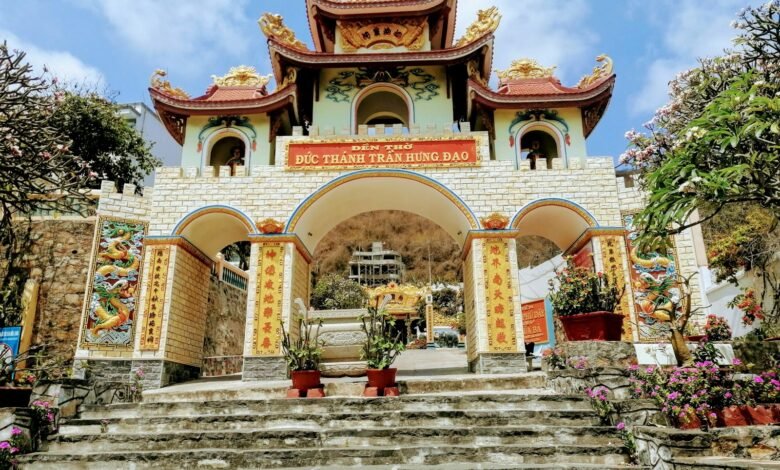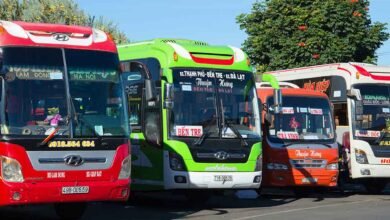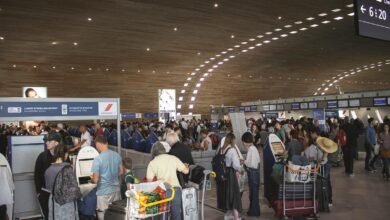Essential Travel Tips for First-Time Visitors to Vietnam

Visiting Vietnam for the first time can be both thrilling and overwhelming, with its rich culture, vibrant cities, and stunning natural landscapes. Whether you’re navigating bustling cities or tranquil villages, knowing some essential tips can make your trip smoother and more enjoyable. Here’s a guide with practical advice to help first-time visitors make the most of their time in Vietnam.
1. Understand Visa Requirements
Make sure to check the latest visa requirements for your nationality. Some travelers may need to apply for a visa in advance, while others may qualify for a visa-on-arrival or e-visa. Applying in advance often saves time and hassle, especially if you’re arriving during peak tourist seasons.
- Tip: Always bring printed copies of your visa approval letter (if applicable) and passport-sized photos for your arrival.
2. Pack Accordingly for the Weather
Vietnam’s climate varies significantly from north to south, with distinct rainy and dry seasons. In the north, expect cooler winters, especially in regions like Hanoi and Sapa, while the south remains warm and tropical year-round. Bring lightweight clothing for the hot and humid climate but pack layers if you’re visiting the northern regions in winter.
- Tip: An umbrella or light rain jacket is essential, especially during the rainy season (typically May to October in the south and September to November in the north).
3. Be Prepared to Use Cash
While credit cards are increasingly accepted in major cities, cash remains the primary mode of payment in most parts of Vietnam. ATMs are widely available, but it’s a good idea to carry enough cash, particularly when visiting rural areas, small shops, or local markets.
- Tip: The Vietnamese dong (VND) is the local currency. Keep small denominations for convenience, as vendors and taxi drivers may not have change for large bills.
4. Learn Basic Vietnamese Phrases
English is spoken in many tourist areas, but learning a few basic Vietnamese phrases can go a long way in showing respect and connecting with locals. Simple greetings like “Xin chào” (hello) and “Cảm ơn” (thank you) are always appreciated.
- Tip: A small phrasebook or language app can be helpful, especially in rural areas where English may not be widely understood.
5. Be Cautious When Crossing the Road
Vietnam’s streets are famous for their chaotic traffic, especially in cities like Hanoi and Ho Chi Minh City, where motorbikes dominate the roads. When crossing, walk at a steady pace without sudden stops or movements; the traffic will flow around you.
- Tip: Use crosswalks where possible, and if you’re nervous, follow a local across the street as they’re familiar with the traffic patterns.
6. Practice Good Street Food Safety
Vietnam is famous for its delicious street food, but first-time visitors should take precautions to avoid any stomach issues. Look for busy food stalls with high turnover, as this often indicates fresh ingredients. Stick to cooked foods and avoid raw fruits and vegetables unless you can peel them yourself.
- Tip: Pho, banh mi, and fresh spring rolls are popular, safe-to-try dishes for beginners.
7. Bargain Politely
Bargaining is common in Vietnam, particularly in local markets and street stalls. Start by offering about 50-70% of the vendor’s initial price, but always bargain politely and with a smile.
- Tip: If the price doesn’t suit you, it’s okay to walk away. Vendors may lower the price if they’re interested in making the sale.
8. Respect Local Customs and Etiquette
Vietnamese culture places great importance on respect and humility. Dress modestly, especially when visiting religious sites, by covering shoulders and knees. When entering temples or pagodas, remove your shoes and avoid pointing your feet at sacred objects.
- Tip: Avoid touching someone’s head, as it’s considered the most sacred part of the body in Vietnamese culture.
9. Stay Connected with a Local SIM Card
Staying connected in Vietnam is easy and affordable with a local SIM card. Viettel, Vinaphone, and Mobifone are popular providers that offer prepaid packages with data, making it easy to use maps, book transport, and stay in touch.
- Tip: SIM cards are available at the airport, convenience stores, and mobile shops. Ensure your phone is unlocked before buying a SIM card.
10. Know Your Transportation Options
Vietnam offers various transportation options, from motorbikes and taxis to buses, trains, and domestic flights. For short trips, consider using rideshare apps like Grab to avoid haggling over prices. For longer distances, consider night trains or budget airlines.
- Tip: Always confirm the fare before starting a journey if you’re using a taxi, or opt for metered taxis from reputable companies like Mai Linh or Vinasun.
11. Stay Aware of Scams
As with any popular tourist destination, there are occasional scams in Vietnam. Be wary of overly friendly strangers offering unsolicited advice, and always confirm the price of goods or services beforehand.
- Tip: Only book tours and services through reputable agencies, and avoid accepting unsolicited help at tourist attractions.
12. Prepare for the Power of Vietnamese Coffee
Vietnamese coffee is strong, delicious, and an essential part of the cultural experience. Whether you prefer it hot or iced, Vietnamese coffee is brewed with rich flavors and often served with sweetened condensed milk. Be prepared for a caffeine jolt!
- Tip: Try “cà phê trứng” (egg coffee), a unique Hanoi specialty that combines coffee with a creamy egg yolk foam for a memorable taste experience.
13. Enjoy the Local Markets
Vietnam’s local markets are full of life, colors, and amazing finds. From fresh produce to handicrafts, you’ll get a sense of local life and discover great souvenirs. Markets are busiest early in the morning, so arrive early for the freshest goods and best deals.
- Popular Markets: Ben Thanh Market (Ho Chi Minh City), Dong Xuan Market (Hanoi), and Hoi An Night Market.
Conclusion
Vietnam is a beautiful, vibrant country with much to offer, and these essential travel tips will help first-time visitors enjoy a safe and fulfilling journey. By understanding local customs, preparing in advance, and staying mindful of the unique cultural elements, you’ll have a smooth and enriching travel experience.



